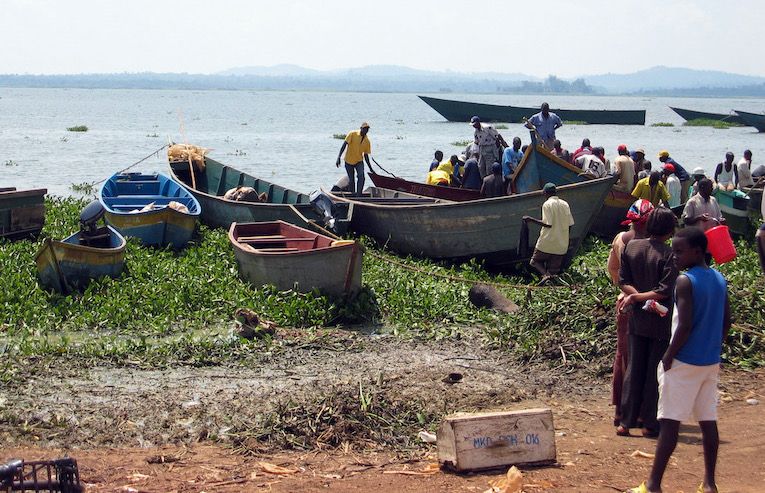
More than 260 organizations issued an open letter to banks and financial institutions involved in the construction of the East African Crude Oil Pipeline (EACOP), which would carry oil from fields in western Uganda to a port on the northern coast of Tanzania. The human rights and environmental organizations say the line’s construction poses “unacceptable” risks to communities in the immediate 1,445-kilometer (898-mile) path of the project and beyond. They are calling on banks not to fund the $3.5 billion project, and asking government leaders to shift funding away from infrastructure for fossil fuels to renewable energy.
The EACOP is a joint project of the French firm Total and the China National Offshore Oil Corporation (CNOOC). Opponents say more than 400 villages would be affected by the line. The report says that works out to some 14,000 households that could lose land on the pipeline’s path, from Hoima in western Uganda to Tanga on Tanzania’s coast. In fact, the report found that Total had blocked access to farmlands for 5,000 households as early as 2018, as crews prepared for construction—and those households have not yet been compensated for the lost income or food production.
The March 1 letter also notes that almost one-third of the pipeline’s length would run through the Lake Victoria Basin. As Africa’s largest lake, Lake Victoria provides livelihoods to 40 million people in the region and water for millions. Its fringes host wetlands critical to hydrological cycles, fish and wildlife. EACOP’s opponents say that both the risk of spills and the construction itself could threaten this vital resource.
The authors of the report also estimate that the oil flowing through the pipeline would release 33 million metric tons of CO2 into the atmosphere, which is more that the annual emissions of Uganda and Tanzania put together.
“Banks have been made aware of the tremendous risks posed by this pipeline, and they have been made aware of the groundswell of opposition from communities and civil society locally and internationally,” Ryan Brightwell, a researcher at the finance and sustainability NGO BankTrack, said in a statement. “Any bank that chooses to finance the EACOP in the face of this opposition will show itself to be among the most irresponsible in the industry.”
Condensed from Mongabay, March 1
Photo: Wikimedia Commons via Mongabay





Uganda ‘surrenders’ international airport to China
The Ugandan government has signed a $207 million agreement with the Export-Import Bank of China, with conditions effectively putting up assets including Entebbe International Airport as collateral. (The Guardian, Nigeria)
French high court allows Total Uganda case to proceed
The Court of Cassation, France’s highest court, ruled to resolve procedural issues in favor of six nonprofit groups in their case against oil giant Total Uganda. Six French and Ugandan civil society organizations argue that, under France’s new duty of vigilance law, Total’s oil projects in Uganda and Tanzania “failed to comply with the company’s legal obligations to prevent human rights violations and environmental harm.” The duty of vigilance law holds France-based parent companies of transnational corporations legally accountable for their impacts around the world. (Jurist)
Uganda activist detained for opposing pipeline project
Uganda People’s Defence Force (UPDF) arrested Ugandan environmental activist Stephen Kwikiriza in Kampala under “alarming circumstances,” according to a June 3 press releasefrom his organization, the Environment Governance Institute (EGI). Kwikiriza is from the Kingfisher project area and has been campaigning against the East African Crude Oil Pipeline (EACOP). (Jurist)
Uganda oil project fuels human rights violations: report
US climate rights watchdog Climate Rights International said in a report on Sept. 2 that the Kingfisher oil project along Lake Albert in Uganda fuels widespread human rights violations of the local population. The report stated that in addition to environmental damage that threatens their livelihoods, locals are subjected to forced evictions and disappearances, labor rights violations and gender-based sexual violence. (Jurist)